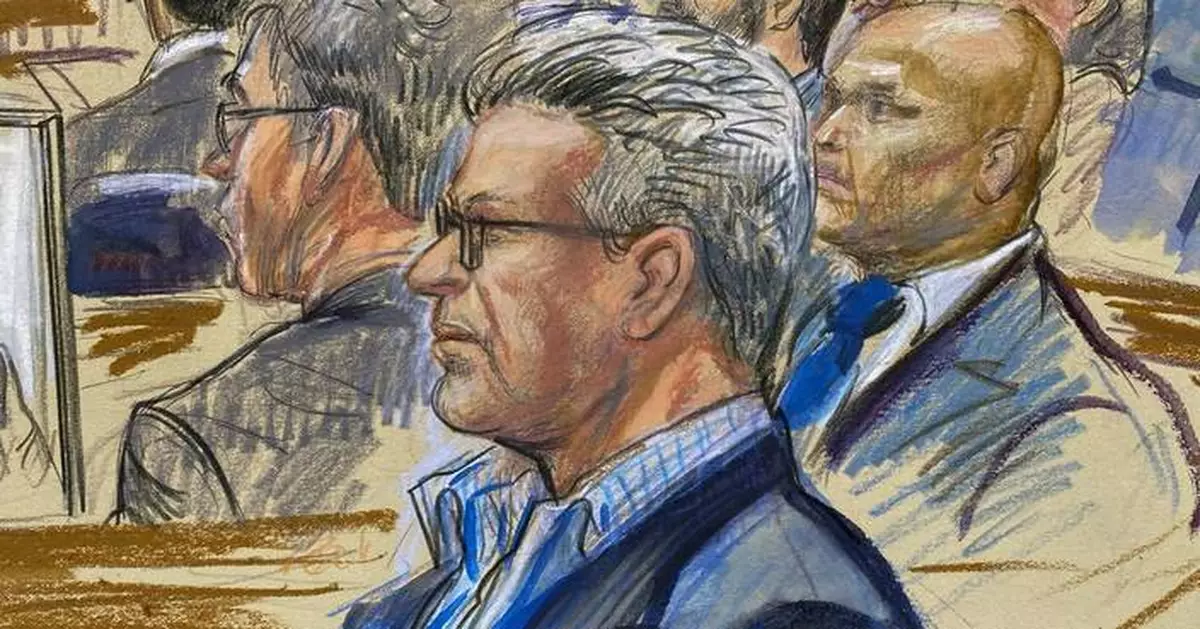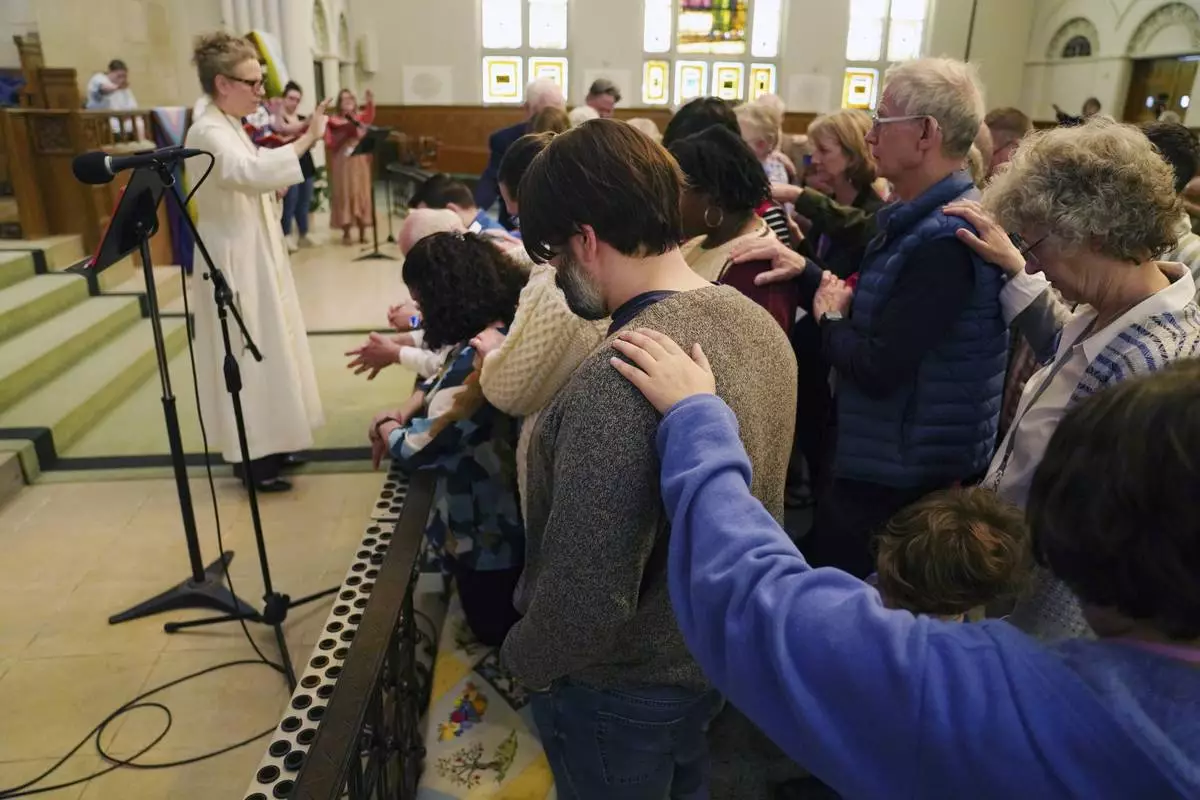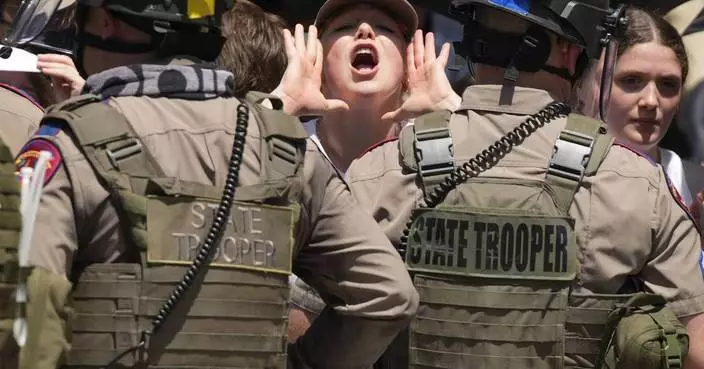ALEXANDRIA, Va. (AP) — A civilian contractor sent to work as an interrogator at Iraq's infamous Abu Ghraib prison resigned within two weeks of his arrival and told his corporate bosses that mistreatment of detainees was likely to continue.
Jurors saw the October 2003 email from Rich Arant, who worked for military contractor CACI, during testimony Wednesday in a lawsuit filed by three Abu Ghraib survivors. The former prisoners are suing CACI, alleging that the Reston-Virginia based company shares responsibility for the mistreatment they endured.
CACI had a contract to supply interrogators to the Army after the 2003 invasion of Iraq, and scrambled to supply the needed personnel. The first CACI interrogators arrived at Abu Ghraib on Sept. 28 of that year.
Arant sent his resignation letter to CACI on Oct. 14. He informed his bosses about his concerns over the handling of prisoners, including what he described as an unauthorized interview of a female inmate by male interrogators. He wrote that “violations of the well-written rules of engagement will likely continue to occur.”
CACI senior officials took no action in response to Arant's resignation letter, according to CACI's lawyers. Subsequent investigations showed that horrific abuses of prisoners at Abu Ghraib, including physical and sexual assaults of inmates, continued for months until the Army launched an investigation in January 2004.
Shocking photos of the abuse became public in April 2004, resulting in a worldwide scandal.
The trial now going forward in U.S. District Court in Alexandria has been delayed by 15 years of legal wrangling and multiple attempts by CACI to have the case dismissed. It is the first lawsuit brought by Abu Ghraib detainees to be heard by a U.S. jury.
In a 2021 pretrial hearing, U.S. District Judge Leonie Brinkema warned CACI that Arant's email “would be a smoking gun in almost any piece of litigation.”
“I’m amazed that nobody at CACI would have wanted to follow up on that type of a memo,” Brinkema said, according to a transcript of that hearing. “Did anybody probe the Arant e-mail? Did anybody speak with him and find out exactly what it was about Abu Ghraib that was troubling him?”
CACI's lawyers have acknowledged that Arant's resignation did not prompt any type of follow-up. But they have said his email doesn't actually detail any abuses by CACI interrogators, only the misconduct of Army soldiers over which the company had no control.
“That is somebody saying, ‘I don’t like the way that soldiers are doing interrogations, but CACI people are clean as a whistle here,'" CACI lawyer John O'Connor said at the 2021 hearing.
Subsequent investigations conducted by the Army found that three CACI interrogators — among dozens who were sent to Abu Ghraib — had engaged in detainee abuse. The interrogators used unauthorized dogs, humiliated inmates by forcing them to wear women's underwear, forced detainees into stress positions, and directed a military police sergeant to push and twist a nightstick into a detainee's arm, the investigations found.
On Wednesday, jurors heard videotaped testimony from retired Maj. Gen. George Fay, who led one of the investigations.
On cross-examination, CACI lawyers asked Fay whether he could link any of the abuses involving CACI contractors to any of the three plaintiffs in the case. Fay said he could not. Many of the specific instances of abuse outlined in Fay's report were inflicted on Iraqi police officers who were thought to have been involved in smuggling a gun into the prison. None of the plaintiffs were police officers.
CACI has argued that even if the plaintiffs suffered abuse, the company should not be held liable unless there's proof that CACI interrogators were directly involved.
Lawyers for the plaintiffs say that issue is irrelevant, because they argue that CACI's interrogators played a key role in creating the overall abusive environment at Abu Ghraib by encouraging military police to “soften up” detainees for questioning.
The trial has moved quickly, and the plaintiffs rested their case late Wednesday afternoon. The first defense witness was Steven Stefanowicz, one of the three CACI interrogators accused of wrongdoing in Fay's report.
Stefanowicz testified, through a recorded video deposition, that his work was closely supervised by the Army and that the Army chain of command approved all of his interrogation plans. He denied some of the specific findings against him in the Fay report.
Jurors saw heavily redacted interrogation reports that said Army officers had approved the use of dogs and “audio adjustment” — a euphemism for loud music played at night to induce sleep deprivation — for one of the detainees assigned to Stefanowicz. But Stefanowicz testified that he never actually used dogs in his interrogations.
He said that he interacted with only a small number of detainees and that Army supervisors quickly promoted him from screener to interrogator.
His description of his limited interaction with detainees conflicts with other trial evidence. In a written trial submission, the U.S. government said that one Army interrogator once found one of his detainees being interrogated by Stefanowicz without authorization and he had to tell Stefanowicz to stop. Some military police soldiers have said in depositions that Stefanowicz was a regular presence at the prison's “hard site” and gave them instructions on how to abuse prisoners.
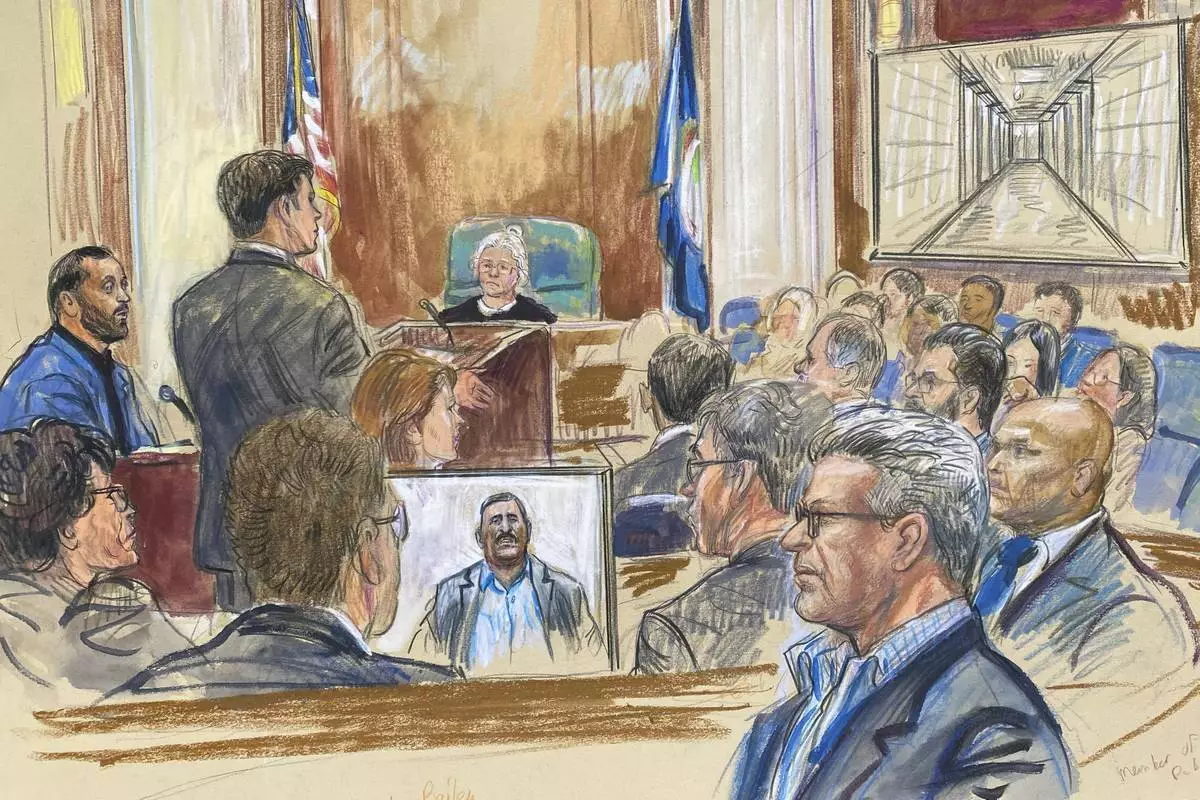
This artist sketch depicts Salah Al-Ejaili, foreground with glasses, a former Al-Jazeera journalist, before the U.S. District Court in Alexandria, Va., Tuesday, April 16, 2024. Al-Ejaili, a former detainee at the infamous Abu Ghraib prison, has described to jurors the type of abuse that is reminiscent of the scandal that erupted there 20 years ago: beatings, being stripped naked and threatened with dogs, stress positions meant to induce exhaustion and pain. (Dana Verkouteren via AP)
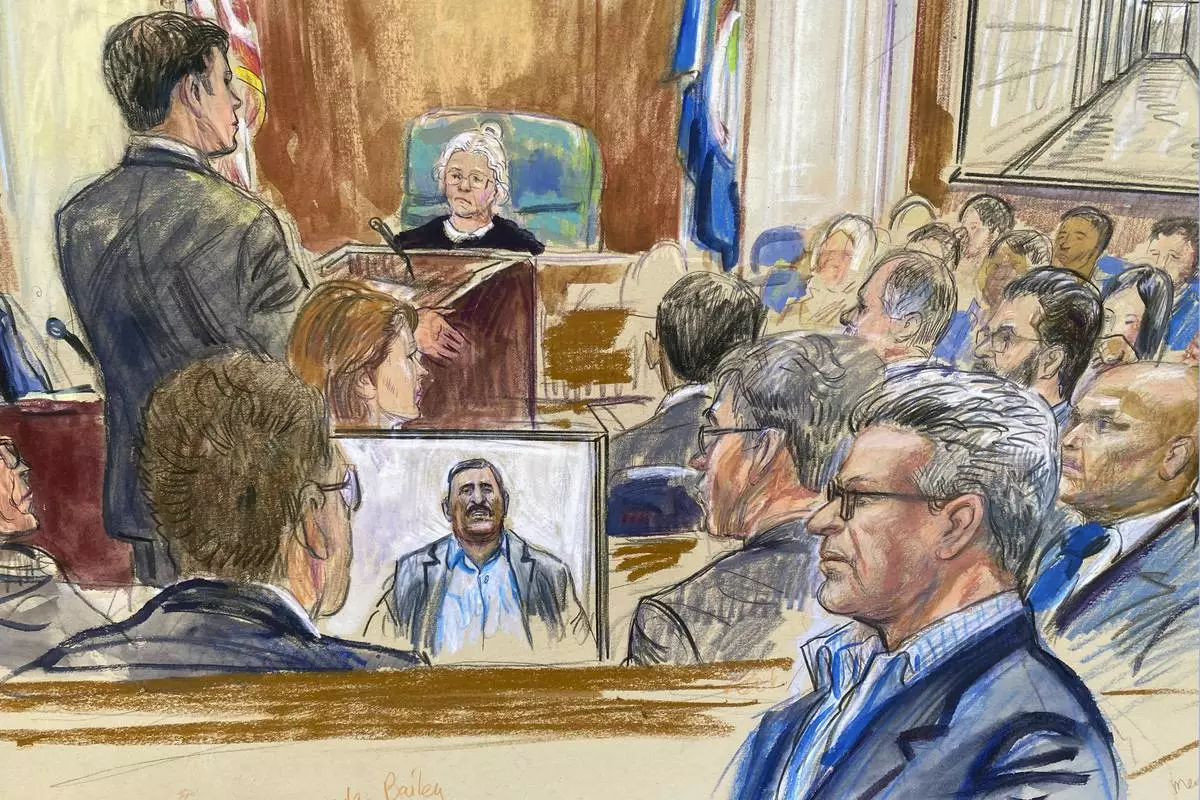
This artist sketch depicts Salah Al-Ejaili, foreground right with glasses, a former Al-Jazeera journalist, before the U.S. District Court in Alexandria, Va., Tuesday, April 16, 2024. Al-Ejaili, a former detainee at the infamous Abu Ghraib prison, has described to jurors the type of abuse that is reminiscent of the scandal that erupted there 20 years ago: beatings, being stripped naked and threatened with dogs, stress positions meant to induce exhaustion and pain. (Dana Verkouteren via AP)
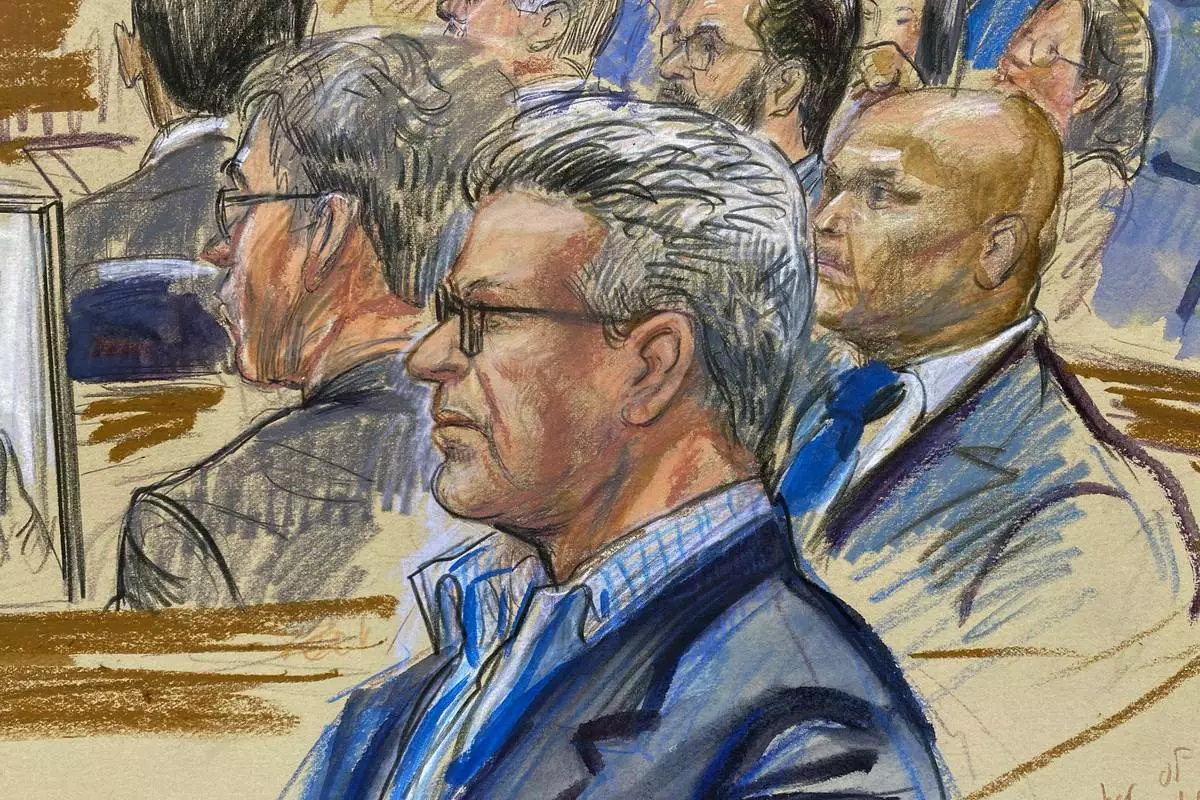
This artist sketch depicts Salah Al-Ejaili, foreground with glasses, a former Al-Jazeera journalist, before the U.S. District Court in Alexandria, Va., Tuesday, April 16, 2024. Al-Ejaili, a former detainee at the infamous Abu Ghraib prison, has described to jurors the type of abuse that is reminiscent of the scandal that erupted there 20 years ago: beatings, being stripped naked and threatened with dogs, stress positions meant to induce exhaustion and pain. (Dana Verkouteren via AP)


